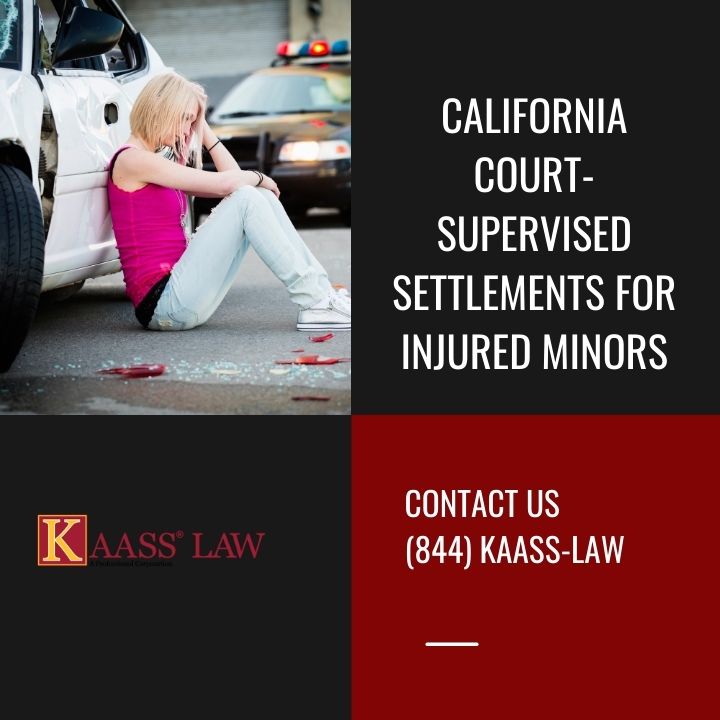A minors’ compromise and release hearing is required by California law if a child under the age of eighteen is injured and receives a monetary settlement from the at-fault party. This means that a guardian must be appointed by the court unless the child is legally emancipated, a judge must approve the settlement for your injured child, and the settlement funds must generally be deposited into a blocked account in any FDIC-insured bank, trust company, savings and loan associate, or similar financial institution located in the state of California, until the child is eighteen years of age. The settlement funds can also be invested in a vehicle like an insurance annuity contract (single-premium deferred annuity). Alternatively, you can have a portion of the funds deposited in a bank and a portion of the funds deposited in an investment vehicle. Please see other articles on this website for more information, or your child’s injury lawyer can explain which method is best for depositing settlement funds.
California Court-Supervised Settlements for Injured Minors
According to California Probate Code Sections 2504,90 3500,91 3600,92 and California Code of Civil Procedure Section 372.93, an enforceable settlement of a child’s injury case can only be consummated with California court approval. The whole point of a court-supervised settlement for injured minors in California is to:
Appoint a guardian to assist the minor child in monitoring his or her settlement funds.
- Ensure that the settlement is fair and equitable to the minor, and
- Obtain a court order in order to obtain the settlement funds
- Make certain that the minor receives the entirety of his or her settlement funds when he or she becomes an adult.
In California, the court process is the best way to approve and monitor a bodily injury settlement for a minor. After their child’s injury was approved by the court and safely deposited into a bank account, parents approached me and asked me to petition the judge for an early release of a portion of the settlement funds that do not directly benefit the minor. Some parents forget that the entire California court process is designed to benefit their child directly because the settlement funds are the child’s funds. Remember that an early release of settlement funds is possible, but it will be closely scrutinized by the courts and must benefit the minor child directly.
Settlement for Injuries to a Minor Child (Settlements Under $5,000)
If the monetary settlement is less than $5,000, California Probate Code Sections 3611(d)94 and 340195 have routinely allowed custodial parents to manage the settlement funds directly on behalf of their minor children, avoiding the need for court approval. In fact, all of California’s major insurance carriers routinely waive minors’ compromise and release hearings when the settlement amount to the injured child is less than $5,000. The reason for the lack of a court approval requirement for settlements under $5,000 is that judges have the discretion to order the settlement funds for a minor child to be placed in a blocked account with withdrawals subject to court approval, or they can order it paid directly to the custodial parent(s).
Looking For An Attorney?
Are you looking for an attorney to help you with your case? Look no further, Kaass Law will be able to provide you great experience, knowledge and satisfaction. Fell free to call our office at 310.943.1171.

